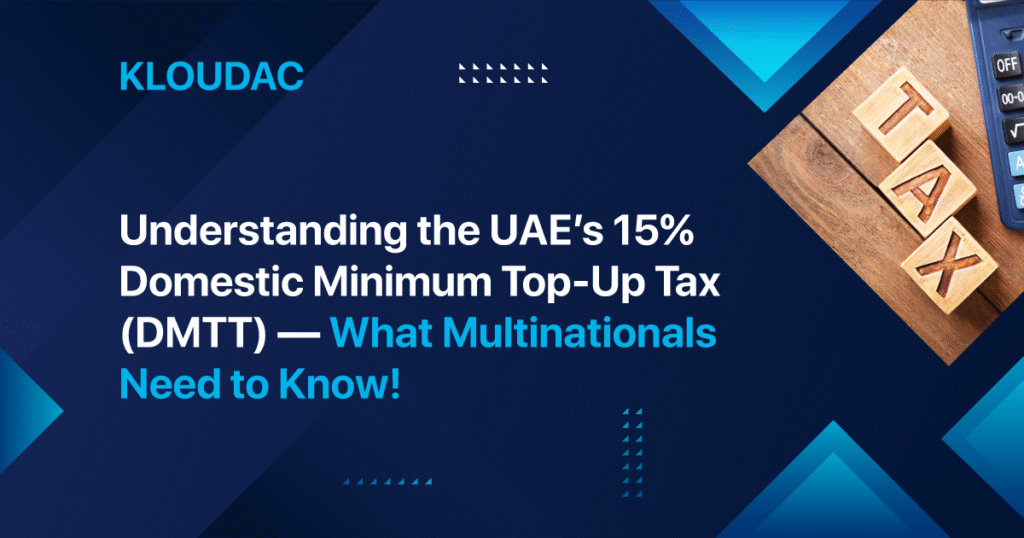Starting January 1, 2025, the UAE implemented a new tax known as the Domestic Minimum Top-Up Tax (DMTT), a move that aligns with the global OECD Pillar Two framework. This marks a significant change for large multinational companies operating in the UAE, particularly those that have historically benefited from low or zero corporate tax rates.
If your business is part of a large international group, understanding DMTT is critical to remaining compliant and strategically positioned.
What Is the DMTT?
The DMTT is a 15% minimum tax that applies to multinational enterprise (MNE) groups operating in the UAE that meet a certain revenue threshold. It ensures that the group pays at least a 15% effective tax rate on income earned in the UAE, regardless of previously applied tax incentives or exemptions.
This aligns with the OECD’s Global Anti-Base Erosion (GloBE) rules, designed to prevent profit shifting and ensure tax fairness across jurisdictions.
Who Does It Apply To?
The DMTT targets large multinational groups with:
- Annual global revenues exceeding EUR 750 million (approximately AED 3.15 billion)
- Entities or operations within the UAE that currently benefit from a tax rate below 15%
This includes free zone companies, holding companies, and other UAE-based subsidiaries of international groups.
When It Took Effect
The DMTT became applicable from January 1, 2025, aligning with the broader rollout of the UAE’s updated corporate tax framework.
All affected companies must assess their tax exposure and group structures well before their first DMTT filing deadline.
Why the UAE Introduced DMTT
Historically, the UAE’s low tax rates made it an attractive base for global businesses. However, under international pressure and the OECD’s BEPS 2.0 initiative, the UAE committed to fairer, more transparent tax practices.
DMTT is a key part of this shift. It ensures the UAE retains competitiveness without enabling tax base erosion or inviting blacklisting from other jurisdictions.
Key Considerations for UAE Businesses
- Effective Tax Rate Review
Multinational groups must calculate their group-wide tax rate to determine if DMTT applies. - Entity Mapping
Understand which UAE entities are part of the MNE group and which are benefiting from incentives. - Financial Reporting Standards
Groups must prepare financials in line with OECD GloBE rules for accurate DMTT calculations. - Filing Requirements
DMTT filings are a part of the corporate tax return, likely with additional schedules and disclosures. - Interaction with Existing UAE Incentives
Qualifying Free Zone Persons may still claim 0% tax on certain income, but DMTT ensures the overall effective rate is no less than 15%.
How to Stay Compliant Now
If you’re part of a large group with UAE presence:
- Confirm your group’s 2‑year EUR 750 million threshold
- Review UAE operations for ETR assessment
- Prepare financial disclosures per GloBE guidance
- File your DMTT return along with your standard corporate tax return
- Reassess if using free zone benefits to remain compliant
For official guidance, refer to the UAE Ministry of Finance DMTT page
How KLOUDAC Can Help
KLOUDAC offers end-to-end corporate tax advisory services tailored to the new DMTT requirements. From assessing your group’s exposure and preparing GloBE-compliant financial reports to structuring entities for reduced tax impact and managing ongoing compliance, our experts ensure you’re fully aligned with UAE regulations, accurately, efficiently, and on time.
